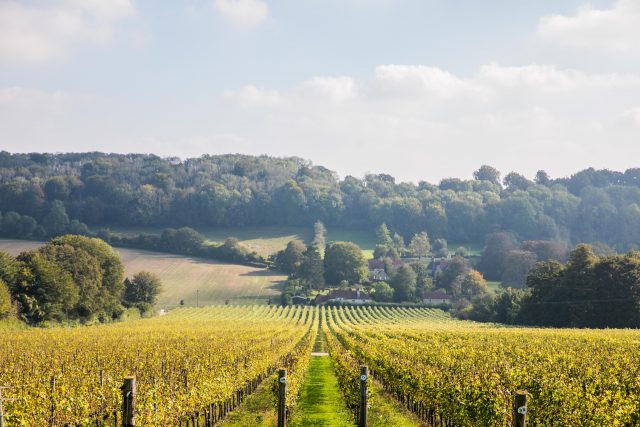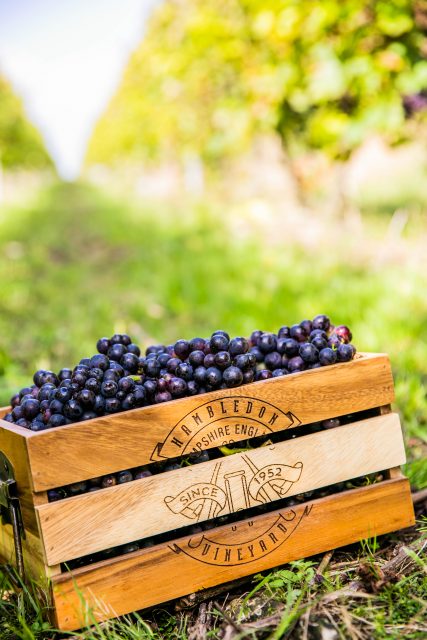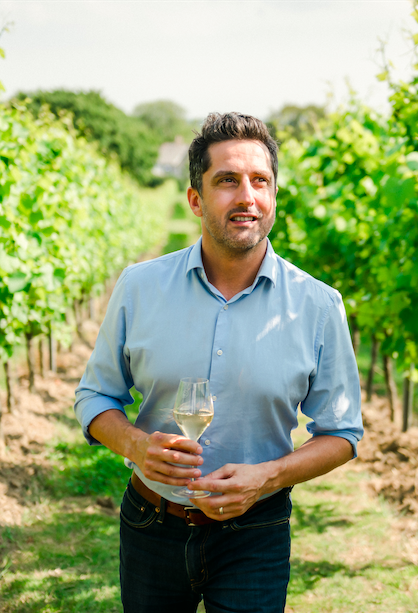This website uses cookies so that we can provide you with the best user experience possible. Cookie information is stored in your browser and performs functions such as recognising you when you return to our website and helping our team to understand which sections of the website you find most interesting and useful.
Vineyard land in England ‘couldn’t possibly be cheaper’
England has enormous potential to expand its wine output, with one leading producer claiming the price of vineyard land “couldn’t possibly be cheaper”.

Speaking to the drinks business, Ian Kellett, owner of Hambledon Vineyard in Hampshire, was bullish about the country’s expansion prospects.
“The price of land in England couldn’t possibly be cheaper right now. The average price of farmland in UK is £12,000-£15,000 an acre, whereas in Champagne the price of a hectare of land ranges from €800,000 to €2.2 million.
“There’s loads of viable land available for planting in England – we’ve barely even begun yet. It took the Champenois 300 years to work out where to grow things.

“To get bigger yields you have to plant more vineyards and we’re always looking for opportunities to expand,” he said.
Having forecast a “massive oversupply” back in 2019 due to a surge in new vineyard plantings across the country, Richard Balfour-Lynn of Balfour Winery in Kent believes the pandemic has helped to redress the supply/demand balance.
“Covid has moved the needle slightly, as have poor harvests in Europe and New Zealand, meaning there’s less wine available at the moment, so in the short term the balance between supply and demand is right.
“I worry about a large number of people planting in England and assuming it’s easy. The key is developing a brand that people recognise and understand is premium.
“I think a lot of people will struggle, as they assume that it’s easy to sell English wine, which isn’t the case, but I’m cautiously optimistic about the state of play in the industry at the moment.
“We’re looking to produce an average of 750,000 to one million bottles a year. We’re making 500,000 bottles right now. We’ll mark our 20th anniversary next year, so I’d hardly call it rapid expansion,” Balfour-Lynn quipped.
He described the 2021 harvest as “the most challenging year” he’d ever seen. “We had frost in spring and terrible weather in August, leading to potential rot problems, but we had a record harvest and good quality juice. The sugar levels are low, which means we won’t be able to make a still red, but we’re able to do everything we want to apart from that.
“You had to look at your vines every day during the growing season – if you missed a spray round for a day you were in trouble. Some people missed things by a day and suffered because of it. It came down to attention to detail,” he said.

For Charlie Holland, CEO and head winemaker of Gusbourne in Kent (pictured left), 2021 was the latest harvest of his career, with yields at the estate down on their average.
“We’ve picked at the end of October before, but never into November. We left the grapes for our still wines out there for longer for the sugars, as it was a cooler year. I’m pretty happy with what we’ve got. Getting the acid to drop on our Chardonnay was a challenge.
“Despite everything that was thrown at us we got good sugar and acidity levels in our Pinot, so I’m quite upbeat considering where we were in the summer.
“This kind of year was a very normal year for England when I first got involved in wine 15 years ago, but we’ve been seduced by the past decade, with its warm September harvests,” he told db.
Bob Lindo of Camel Valley in Cornwall found the 2021 vintage to be “better than predicted” following “the worst spring” he’d ever known as a winemaker.
“An Indian summer saved the day here, so things did ripen. Our yields were down by around 30%, but we’ll make some decent wine this year,” he said.
As to whether there’s a glut on the horizon for English wine, Lindo doesn’t think it will happen any time soon.
“People are planting everywhere, so we will have to worry about a glut eventually, but that’s a long way off. One of the biggest barriers to the expansion of the industry is the unpredictability of the climate and the weather,” he said.
As for Kellett of Hambledon, his yields were down by around 30-40% this year. “We didn’t have problems with frost as we’re close to the sea, which helps a lot. The bigger issue for us was rainfall during flowering and through the summer months. The heatwave came a week too late,” he said.
“We picked our black grapes later than normal. I’m pleased we’re only making sparkling this year. While we did achieve very clean fruit, all of the wine we make this year will be non-vintage,” he added.

